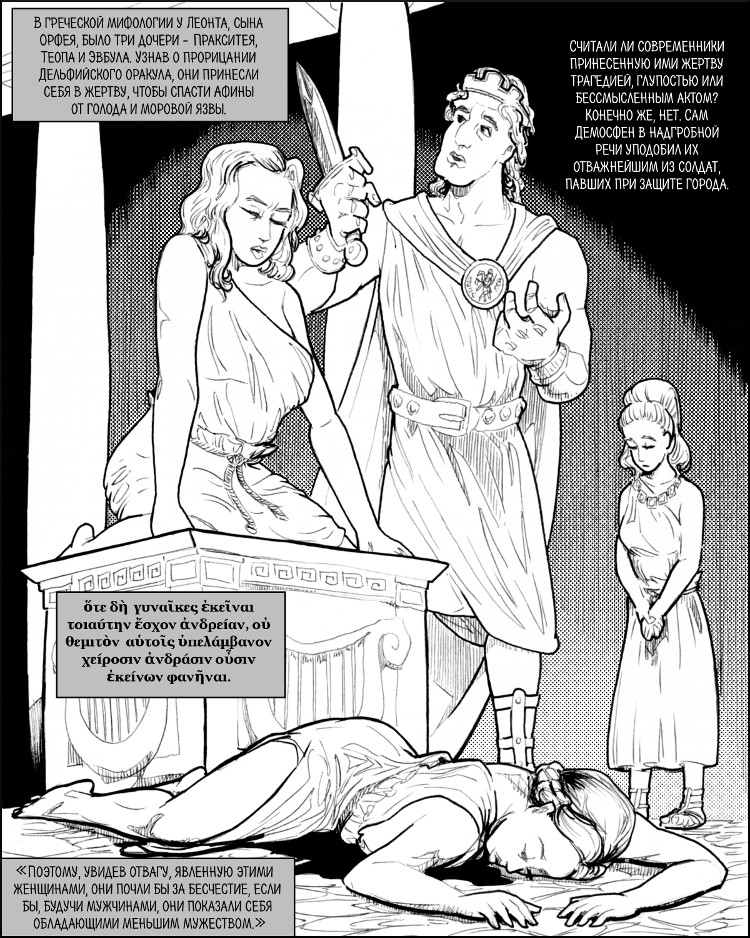

This work is licensed under a Creative Commons Attribution-NonCommercial-ShareAlike 4.0 International License.
PAGE 83 (Single panel page)
Single panel: A representation of Leos sacrificing his three daughters Praxithea, Theope, and Eubule. There are a number of art-historical views of what human sacrifices might have looked like in Archaic Greece and mostly this will be left to the discretion of the artist, with the recommendation that he image search some of the more famous Greek maiden sacrifices, such as those of Iphigenia or Polyxena, and extrapolate from there. Perhaps Praxithea can be lying already sacrificed at her father’s feet, Theope can be under the knife, and Eubule can be patiently waiting her turn. The four captions can be at the corners of the illustration, or otherwise arranged as seems reasonable.
CAPTION – UU Minister speaking (1): In Greek legend, Leos, the son of Orpheus, had three daughters: Praxithea, Theope, and Eubule. In response to a prophecy from the Oracle at Delphi, these three daughters volunteered themselves for sacrifice to save Athens from famine and plague.
Translation (1): В греческой мифологии у Леонта, сына Орфея, было три дочери – Пракситея, Теопа и Эвбула. Узнав о прорицании Дельфийского оракула, они принесли себя в жертву, чтобы спасти Афины от голода и моровой язвы.
CAPTION – UU Minister speaking (2): Were their sacrifices regarded as tragedy, stupidity, or waste? Far from it. Demosthenes himself, in his funeral oration, compared them to the bravest of soldiers who fell defending their city.
Translation (2): Считали ли современники принесенную ими жертву трагедией, глупостью или бессмысленным актом? Конечно же, нет. Сам Демосфен в надгробной речи уподобил их отважнейшим из солдат, павших при защите города.
CAPTION – UU Minister quoting Demosthenes (3): ὅτε δὴ γυναῖκες ἐκεῖναι τοιαύτην ἔσχον ἀνδρείαν, οὐ θεμιτὸν αὑτοῖς ὑπελάμβανον χείροσιν ἀνδράσιν οὖσιν ἐκείνων φανῆναι.
CAPTION – UU – Minister translating (4): “When, therefore, such courage was displayed by those women, they looked upon it as a heinous thing if they, being men, should have proved to possess less of manhood.”
Translation (4): «Поэтому, увидев отвагу, явленную этими женщинами, они почли бы за бесчестие, если бы, будучи мужчинами, они показали себя обладающими меньшим мужеством.»
![]() Приманка (русский язык/Версия с длинной страницей)
Приманка (русский язык/Версия с длинной страницей)
Приманка (русский язык/Слайдер-версия)
